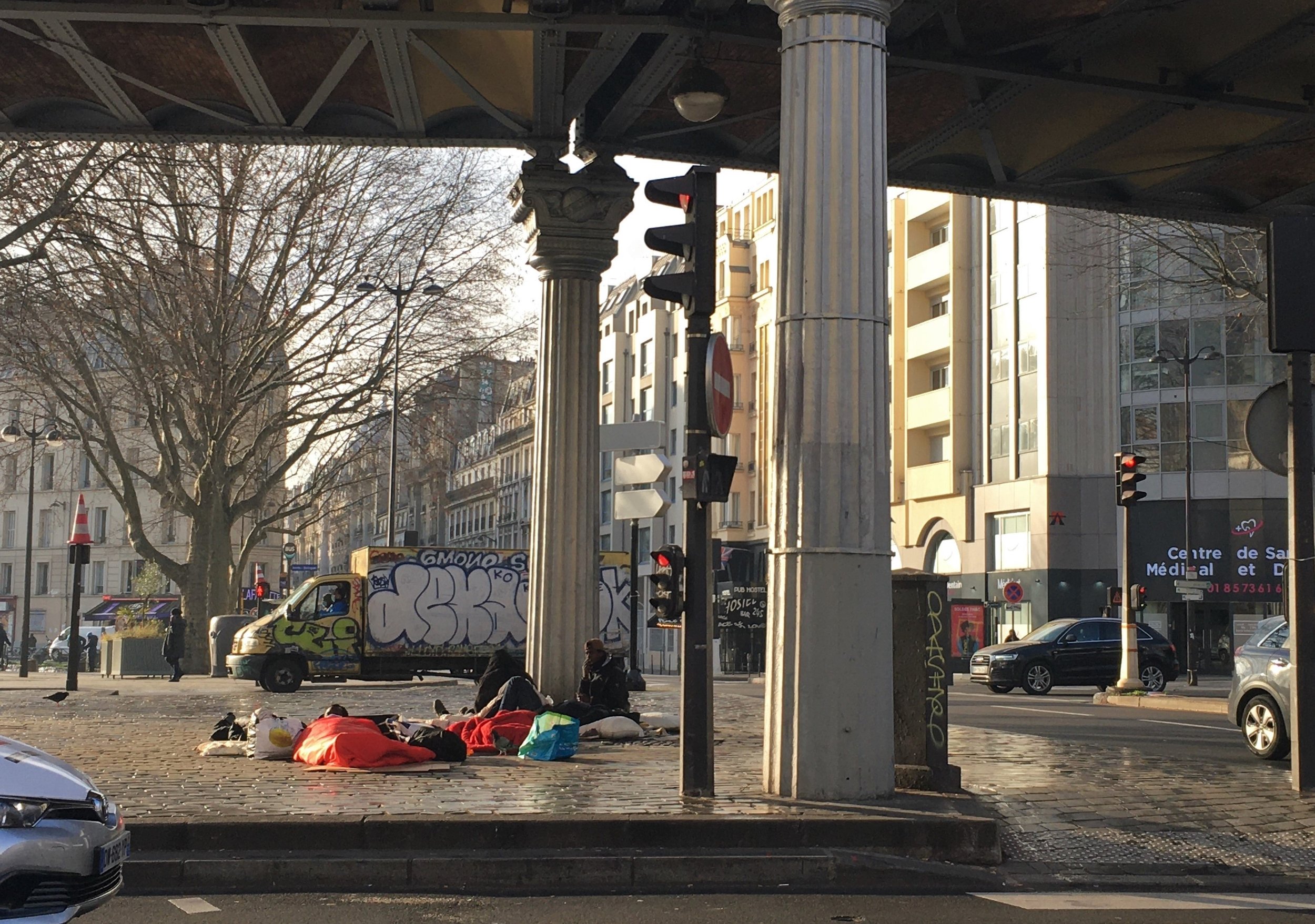A Pioneer in Paris experienced her lifelong dream come true when the Olympics came to her city this past summer. Below she shares what it was like for her as a missionary to see the nations come to France. Let’s rejoice with her and pray with her for Paris—the city that is home to more nations than any other city in the world! Here’s what she said:
In the years and months leading up the Olympics, a massive mobilization and collaboration effort was created, a sort of "hub" to unite all the different Christian works that would be happening. They posted volunteer opportunities, outreach activities, proposed training and evangelism resources, and resourced groups with Olympic-themed New Testaments and other tools.
With all the world descending upon my city, I wanted to seize the opportunity to reach the nations with the Gospel. Initially it was overwhelming to know which group to join, but ultimately I joined two different groups I had connections with, one using sports activities to reach their neighborhood, the other doing street evangelism and using the arts as a starting point for spiritual discussion.
Unbeknownst to me, pin-trading is a thing during the Olympics (who knew!), and someone had the brilliant idea to use pins as a means to share the Gospel. We distributed several Olympic-themed pins, using the colors to walk through the Gospel message, reminiscent of those old beaded bracelets. The card had a QR code sending people to a great website to go deeper, offered in countless languages, which was particularly helpful for the times when we were unable to walk through the explanation. Not only were thousands given out, the online response has been incredible—they have more people asking questions than they have responders! Praise the Lord for the spiritual hunger!! It was a fun and unique way to share the Gospel, and I was able to get into several conversations the day I went out sharing in the street. I heard from many people that the Olympics created a greater openness in people, even among the normally-wary French. Praise God!
In particular, I believe there were two people with whom God orchestrated a divine appointment for me. The first day that I joined the sports-focused group I met an American, Ari. On the way to play ultimate frisbee I asked him questions about himself. That quickly led to an hour and a half long discussion about God, the Gospel, the problems of this world and the solutions. It was an incredible conversation, and I invite you to pray for this young man seeking answers. Pray that this secular Jew reads the Gospels and encounters Jesus as his Messiah!
Finally, near the end of the Olympics, I was in an art gallery being used for outreach, preparing to go out into the streets armed with pins. But I never made it out, because I began talking with Imran, a young Turkish man studying in Paris who stumbled upon the gallery. We ended up talking for two hours about God, Islam, Christianity, and Jesus. He took a New Testament home and thanked me profusely for the “enriching conversation.” I believe that he is truly seeking truth, and ask you to pray with me for God to reveal to him The Truth in Jesus!
While I'm thankful for those days I was able to do evangelism in the city, I was also thankful for the chance to fully experience the Olympic magic in Paris! I especially loved the Nations Park—an entire section of Paris where countries opened up Hospitality Houses, a place to learn about their culture, try their cuisine, watch their athletes' compete, or even meet the athletes themselves. It was so impressive to literally see all nations gathered for one common reason—truly a foretaste of heaven! I absolutely loved it.
One of the most beautiful things was seeing the Parisians and the French get swept up in the Olympic excitement. Leading up to the Games there had been such apprehension and frustration about the ways it could all go wrong. Many people I knew wanted nothing to do with the Olympics. As a result, massive amounts of Parisians fled the city to avoid it, leaving Paris shockingly calm and almost empty in some parts. But much to everyone's surprise, everything went off without a hitch, and so an overall happiness settled in, a sense of pride in Paris took over, and even people who initially didn't care got swept up in the electric atmosphere. Once the Olympics began, there was a change that took over the city...people talked to each other, smiled more easily, developed amazing patience when the metro was crowded, and showed incredible patriotism for any and every French athlete.
Over and over I heard and saw how great the French fans were, how kind and hospitable everyone was. It was truly like Paris relaxed and welcomed the world with open arms. I have never been more proud to be a part of France, nor loved living in Paris more than I did during the Olympics! I often said, “This is what Paris is meant to be!”
I can only hope some of that attitude sticks around, especially that openness and warmth that allows you to connect more easily with people. The Olympics are over, but the need for prayer after all the seed-sowing isn’t! Please pray with me.
Pray for the thousands of seeds of the Gospel planted during the Olympics. Pray for people to go online and seek more information. Pray for them to encounter more believers who water those seeds.
Pray for the Gospel to spread to all nations as a result of hearing the good news here and taking it back home.
Pray also for the French church to grow as a result of people hearing the Gospel. Pray they find a church and get discipled. Pray for a continued openness to the Gospel! Pray for the Lord to transform this secular culture by His powerful Word.
Pray for the people I connected with: Ari, Imran, and Matisse, among others whose names I never got.
Pray that some of that openness, positivity, and relaxed mindset sticks around after the Olympics.
What a gift the Games were! May God be glorified among the nations right here in Paris and beyond.

















